Ganga Kayak Festival wraps up in Rishikesh
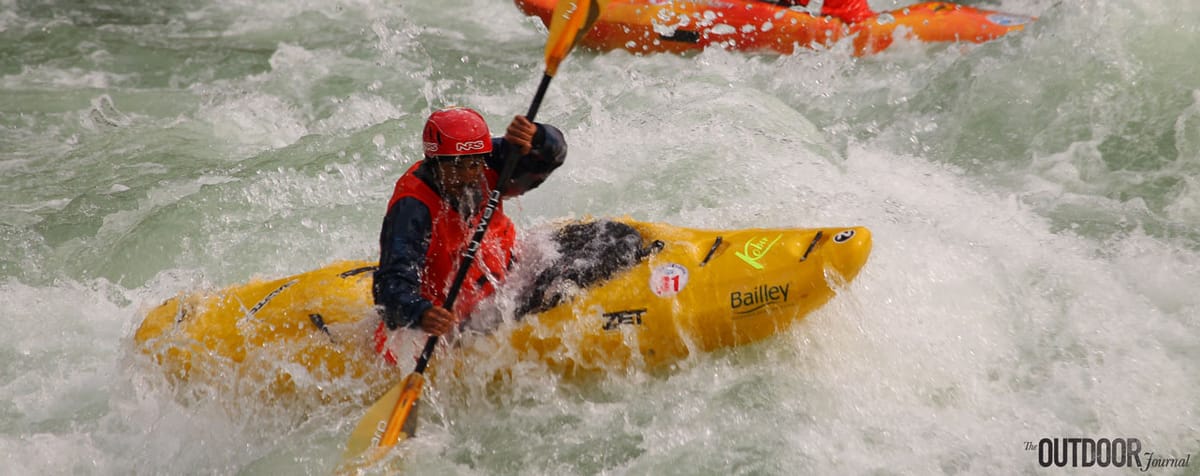
The 2nd edition of the competition saw India’s best kayakers rub shoulders with top athletes from around the world, giving a much needed impetus to kayaking as a sport in India
Pramod Gurung of Nepal precariously made his way up a 10 ft high makeshift wooden ramp overlooking the river Ganges in the adventure sports hub of Rishikesh in North India and stormed down it's slope to hit the cold emerald colored water in his hardshell kayak.
Gurung, who is one of the top kayakers in his country, was at the foothills of the great Himalayas to make a splash in the 2nd edition of the international kayak competition, the 'Ganga Kayak Festival', on March 5/6. And that he did in the sprint section of the race and beat by a considerable margin to beat the local champion Ayodhya Prasad.
"I am thrilled. It was an amazing experience to come to India and participate in this unique competition. I think the kayakers were of very high standards and the course, a class 4 rapid is a tough one. Even professionals were found swimming. This is the best way to promote kayaking as a competitive sport in India", he says before fastening his whitewater helmet and paddling away towards the rapids locally known as 'Golf Course'.
The international event saw 42 professional and amateur kayakers from India, Nepal, Uk, Canada and Norway battling it out in three categories along the 200 mtr stretch of one of the finest rapids in Rishikesh. The event had 3 race categories – Sprint, Boater Cross and Mass Boater Cross.
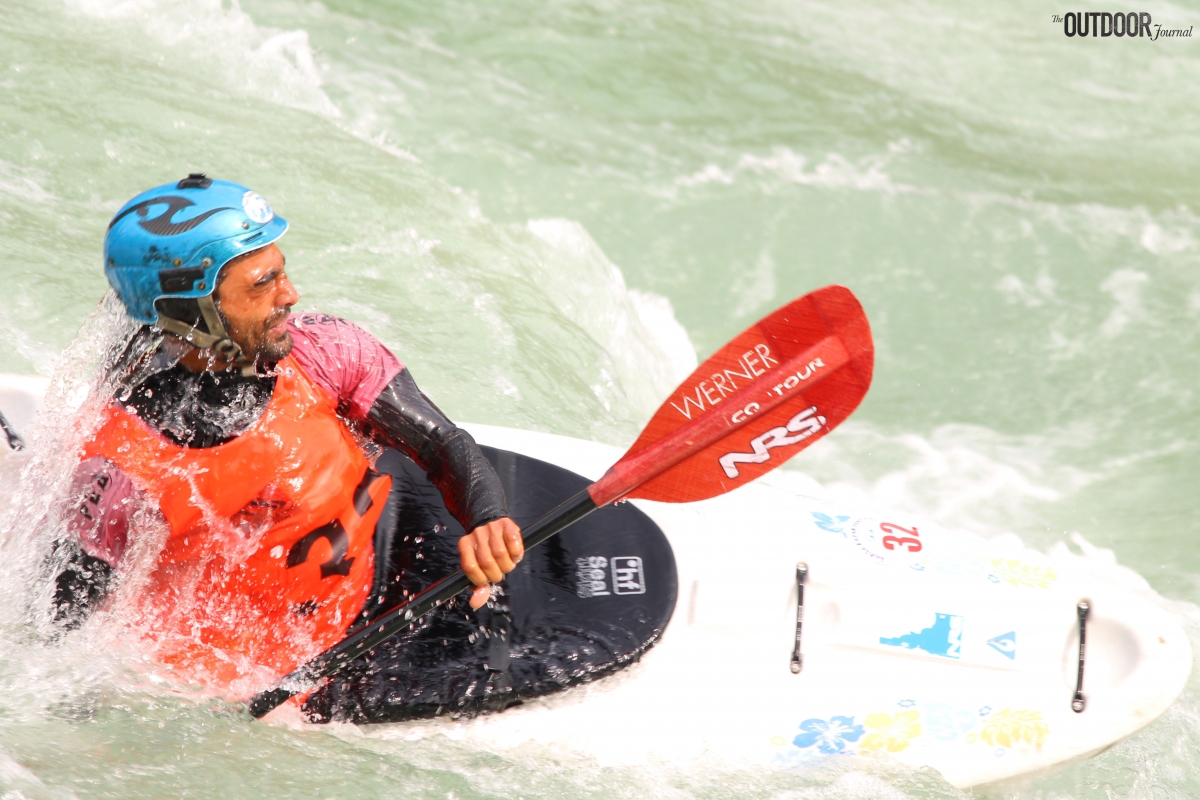
A huge banner at the event venue reads ‘Welcome to the 2nd Edition of the Ganga Kayak Festival’. And, the sight of men and women with burnt, brown skin, bulging forearms and chiseled physique making their way to the river with their kayak balanced between their neck and shoulder, just makes it all seem right.
The competition is the brainchild of local kayaker, rafter Bhupendra Singh Rana alias ‘Bhupi’ because there are way too many people by the same name in the locality. [quote_right] "I have kayaked in the White Nile in Uganda, in Austria and other parts of Europe, and all over India. [/quote_right]
The organisers also see the competition as a game changer in attracting more extreme sports participants to this region as also regular tourism after it went into a shrink for a while following the 2013 flash floods in this part of the mountain belt.
There are coloured flags at the starting point at the end point of the race, and they all go into the river one by one. And, it's not a straight-down-the-river race. Kayakers have to craftily paddle through an 'eddy' (a river feature that forms just downstream of an obstruction), go to the other side of the bank amidst swirling waters and touch their paddle on a marked hoarding and race ahead. Another challenge was to touch a hoarding with hand. The winner will be decided based on timing.
A spectator area has been set up on the hillock for people to get a bird's eye view of the race while many others just sit on the rocks and watch the gushing river swirl, dip, roar and try its best to make things tougher for rafters and kayakers. The commentator announces the name of the first participant, and he is ready and sitting in his kayak on the top of a ramp. On the word ‘go’, he pushes the kayak and it slides down the ramp and splashes into the water. With fast strokes, he speeds and steers his kayak towards the rapids. Everyone cheers. Some of the kayakers are screaming out advising him. He cannot hear them over the roar of the Ganga, but they try anyway.
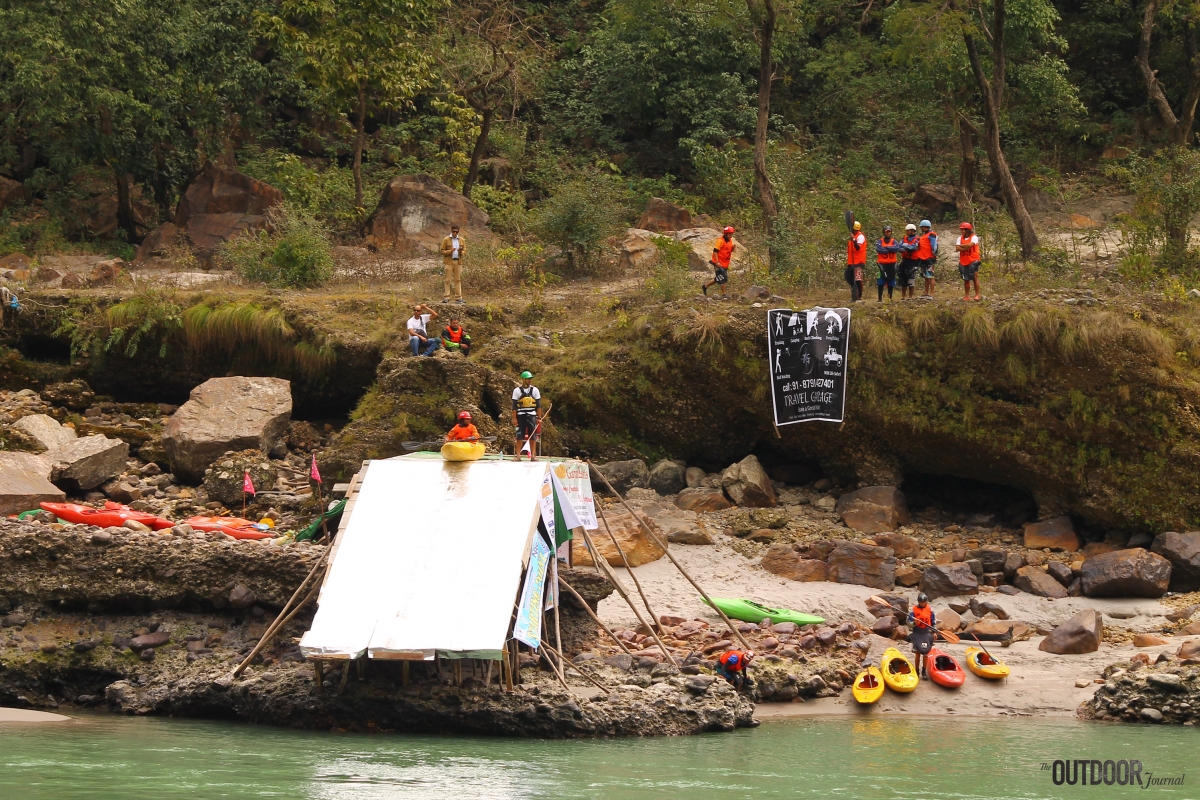
"It is truly an amazing feeling to participate in a competition on a river that is our lifeline and main source of income," says Sunita, who is among the only two women kayakers in India. She works as a rafting guide with a private company in the same region. It takes her but a few minutes to transform from a soft spoken woman to a fierce paddler who is ready to take on a gurgling rapid.
Day One ended by sunset and participants are all put up at a resort to get some sleep and start the next day with added vigor for the final push.
A few hours into day break and the Nepalese team had more reasons to cheer. Their number one kayaker Pramod Gurung won the Boater Cross race. In this, two kayakers are pitted against each other and race to the finish line. The winning kayaker would proceed to the next round, and eventually it all comes down to last man standing. One of the most exciting races was between Pramod and local favourite Ayodhya Prasad – who had created waves at the Malabar River Festival in 2013. Ayodhya came 4th overall in this race, while Dinesh Pandey came 3rd. Based on his performance, Dinesh was declared Overall Champion.
A broad shouldered kayaker walks past and smiles. Mark Leblanc, a Canadian kayaker and travel jump master did not have a great run in the finals but loved the competition and the atmosphere it created.
"The rapids at Golf Course are definitely 3+ and have more volume stuff. So, lots of fun, lots of crashing waves. I would say the keel of competition is fairly high and competitive. There's a great atmosphere of sportsmanship.”
His words rung true as even the best of kayakers present were seen swimming after they toppled during the competition.
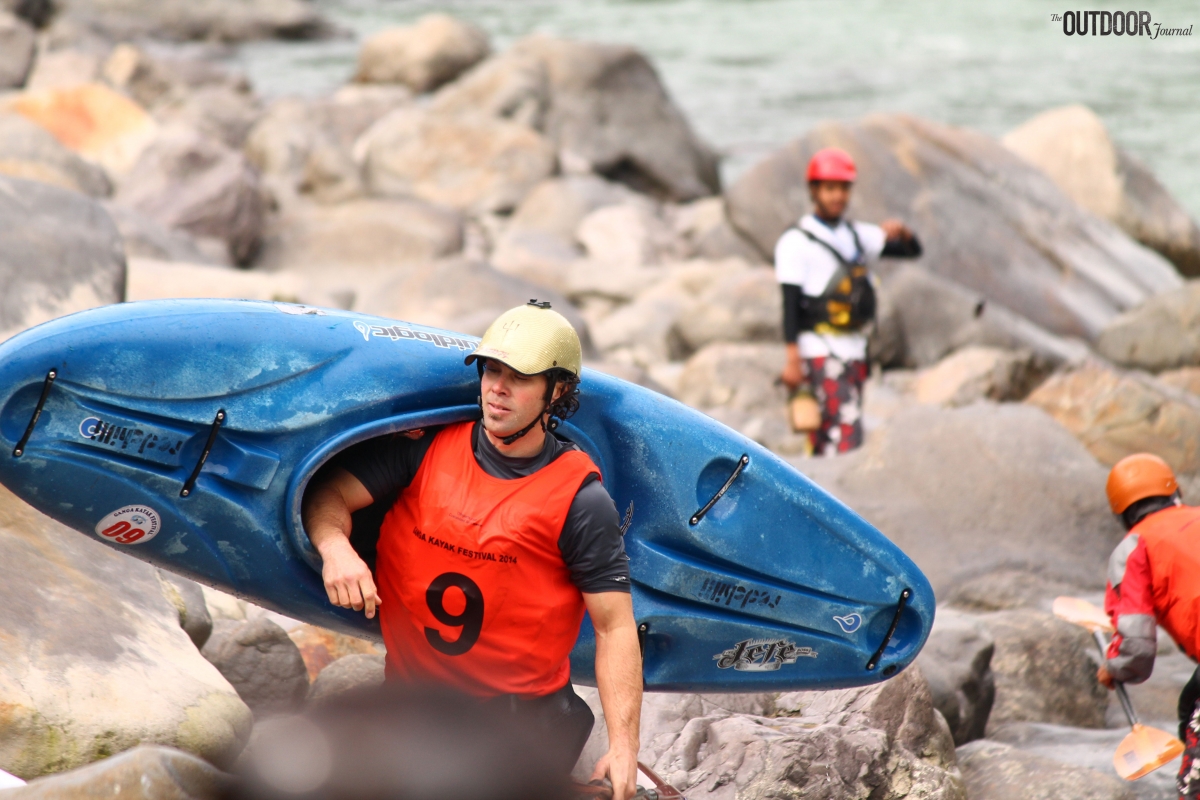
The Mass Boater Cross was won by local lad Sanjay Rana while Ayodhya Prasad came 3rd. The Beginners’ and Womens’ Categories were won by Deepak Thapa (Nepal) and Sunita Chauhan (India) respectively.
Rishikesh-based The Adventure Sporty Society (TASS) was also the main force behind organising the competition and its secretary, Bhupendra Singh Adhikari alias 'Eddy' was elated with it's outcome. A legend of sorts in these parts, Adhikari has been responsible for promoting, sponsoring several Indian athletes, even for the world championships in various categories.
“Our goal is to bring kayaking into mainstream sports in India and right now we are very far from that." Adhikari says till about a few years back kayaking was a safety vessel for rafters in river and most young paddlers end up working for rafting companies all their lives, and not pursue it as a competitive sport.
He adds, "Young kayakers from India are these days going abroad to work with foreign companies and are getting tremendous exposure to the sport. We want the kayakers to be competitive and earn a living out of this whitewater sport and not just be river guides,” he adds.
Despite the state of Uttarakhand backing the competition, the organisers say much more help from the government is required if the infrastructure for aqua-sports has to be developed as per international standards to draw more foreign participants. They say the event would not have been possible without the help of local businessmen and industrialists.
"Everybody chipped in with whatever resources possible... the organisers pooled in some money, rafting company owners like myself contributed by taking charge of the critical role of safety kayakers," says Anvesh Singh Thapa, of Expeditions India. Ayodhya Prasad (23) from Tehri in Garhwal, works as a rafting guide in Rishikesh with a private operator. He is a member of the Indian team in the freestyle category. He seems a little unhappy with his performance in 2014 but still beams a smile when waved at.
"GKF is a great platform for us kayakers. I lost in the sprint to the Nepal team kayaker as the water level was going up and down at that time and I missed the line and came fifth. I was trying to get into the line so that it takes me directly to the eddy but I missed it and by then he had a lead over me," he says.
About the other foreign national participants Prasad says that the Norwegian, the Canadian and the British were skilled enough to reach the semi finals of the individual sprints but eventually lost to the better paddler. "We hope their presence helps boost the number of international participants next year", Prasad says, digging into his noodle-filled bowl.
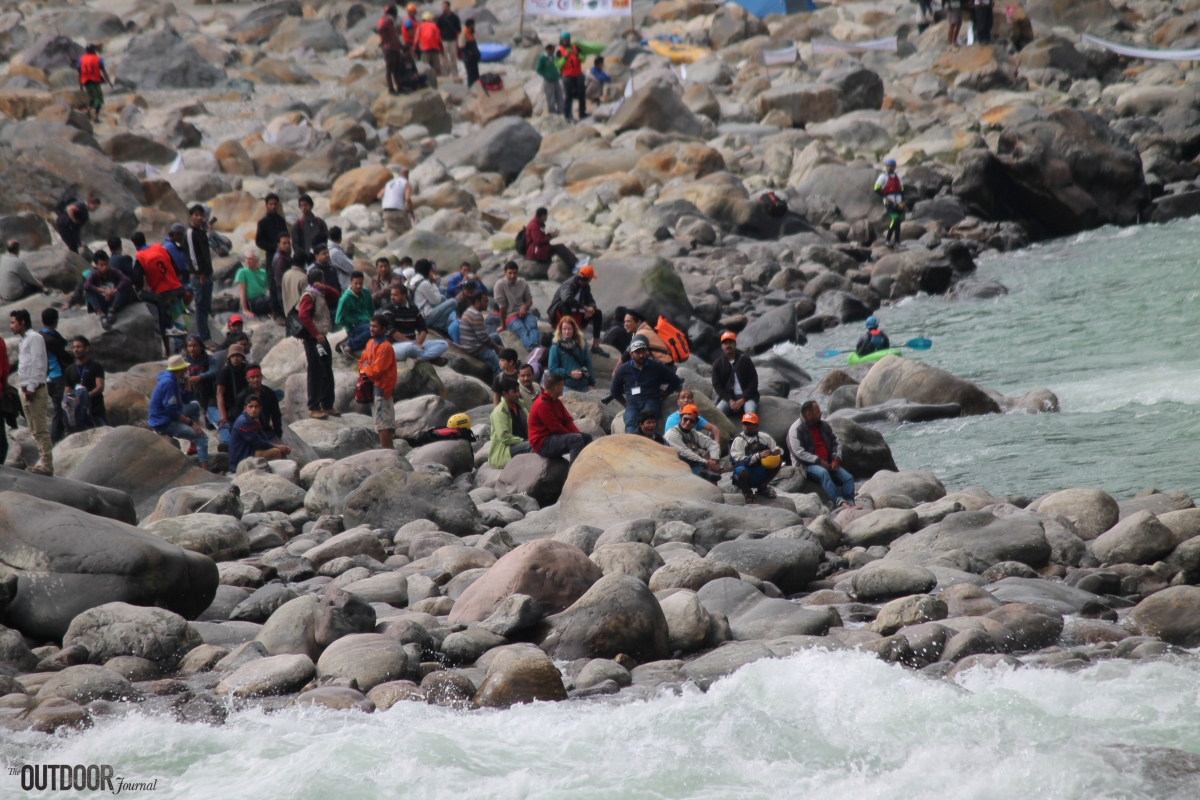
The GKF 2 also had a team from Madras Fun tools -- one of India's leading distributors of top brands of Kayaking gear. Leading the team was adventurer / kayaker Manek Taneja. "We particiapted here last year too and were inspired to hold the first edition of Malabar River Festival in 2013. Such white water sporting activities are the right mediums to promote kayaking in India," he says walking along the stony riverbed, water trickling out of his spray skirt.
The GKF team bid the visting Nepal team amicable goodbyes but with an undercurrent of challenge to take them on in the Himalayan Whitewater Challenge which is hosted by the Nepal Kayak Club.
Image © Shekhar RawatPlace: Rishikesh, Uttarakhand


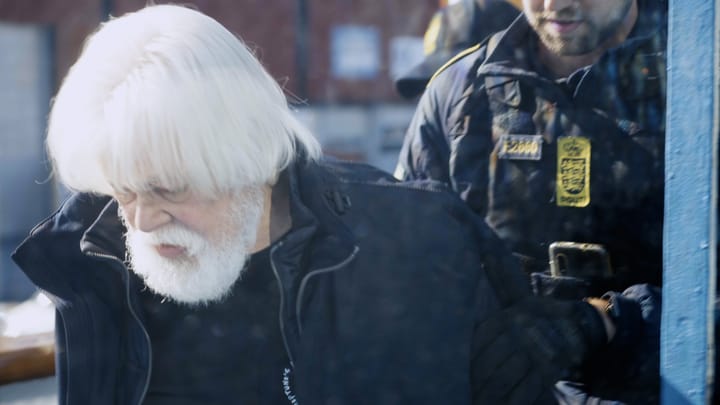

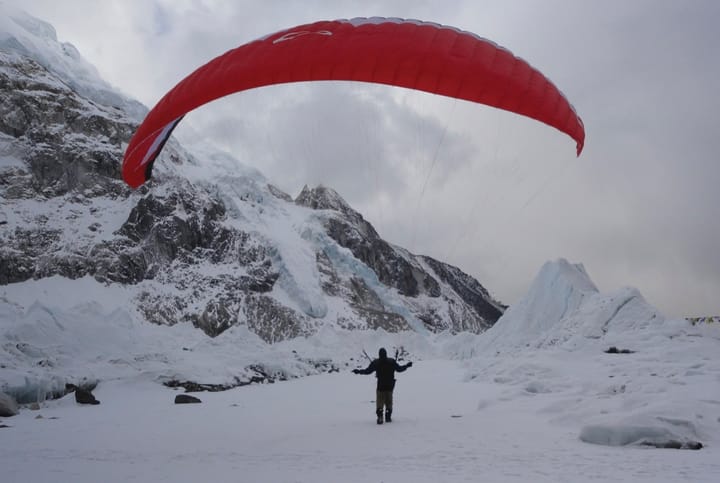
Comments ()